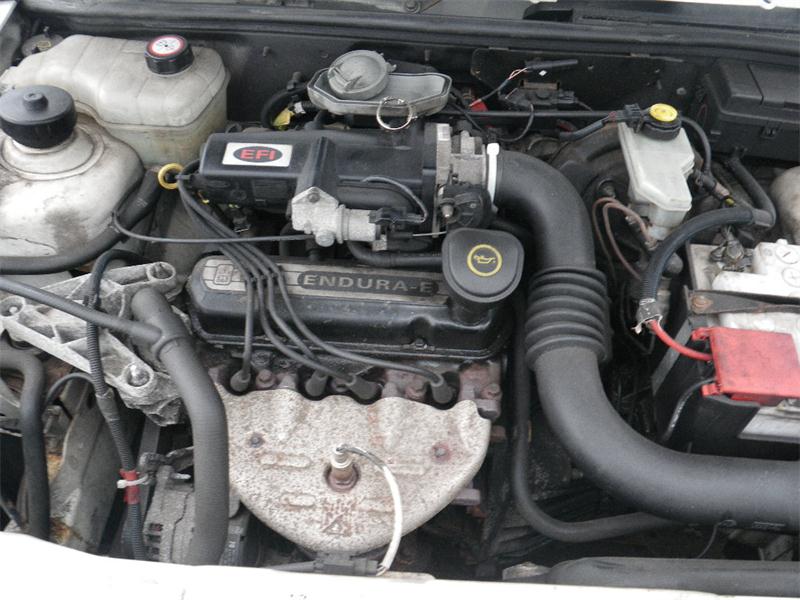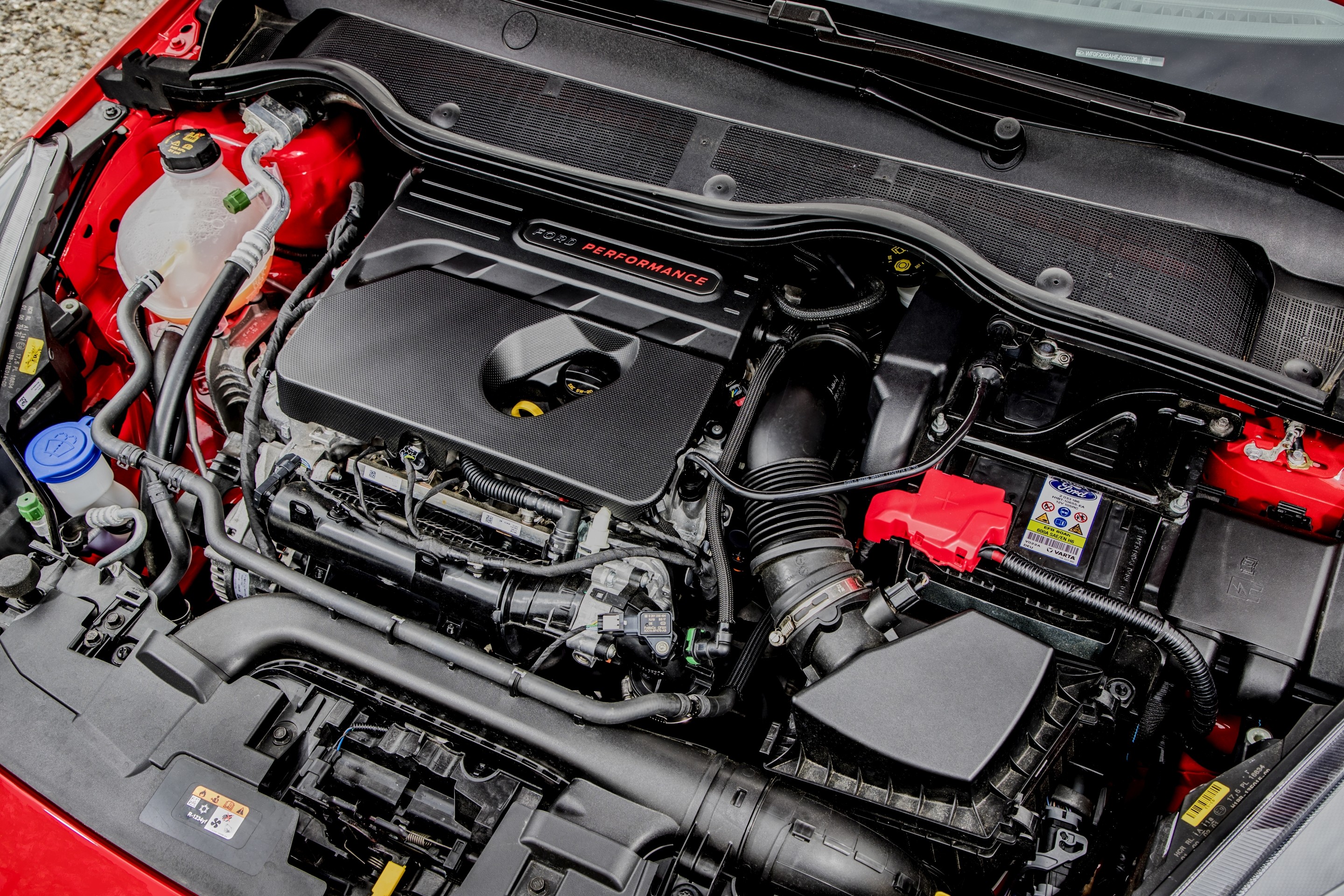Why Regular Maintenance of Your Ford Fiesta Engine Is Essential
Why Regular Maintenance of Your Ford Fiesta Engine Is Essential
Blog Article
The Future of Engines: Technologies Driving Lasting Power Solutions
As the vehicle sector browses the imperative change towards sustainability, the future of engines is progressively defined by groundbreaking technologies. Electric engine improvements, alongside encouraging developments in hydrogen gas cells and biofuels, are improving the landscape of power remedies.
Electric Engine Advancement
The development of electric engine developments symbolizes a crucial shift in the automobile and aerospace sectors, driven by the urgent need for sustainable options to fossil fuels. This shift is identified by considerable improvements in battery innovation, power electronics, and electrical motor design, which jointly boost the efficiency and performance of electrical engines.
Recent technologies have caused the development of lighter, more energy-dense batteries, such as lithium-silicon and solid-state batteries, which guarantee longer varieties and much shorter charging times. Additionally, renovations in electric motor performance, such as the use of permanent magnets and advanced cooling systems, make it possible for electrical engines to operate successfully under varying conditions. These improvements not just enhance lorry performance but also add to a reduction in general energy intake.
Furthermore, the combination of sophisticated software application formulas has actually optimized energy administration in electrical vehicles, enabling regenerative stopping and predictive charging approaches. As producers significantly embrace electric propulsion, the aerospace and automotive markets are witnessing a standard shift in the direction of greener innovations. This development not just fulfills governing demands however additionally aligns with customer choices for eco-friendly transportation options, strengthening electric engines as a foundation of future lasting flexibility.
Advancements in Biofuels
As the automotive and aerospace sectors significantly focus on sustainable power sources, advancements in biofuels arise as a corresponding solution to electric engines. Biofuels, originated from natural products such as plants, waste, and algae, provide a cutting-edge opportunity for minimizing greenhouse gas exhausts and dependence on fossil fuels.
Current study has concentrated on improving the efficiency and sustainability of biofuel production. Second-generation biofuels make use of non-food feedstocks, minimizing competition with food supply and reducing ecological effect. Innovations in artificial biology have actually made it possible for the design of microbes to create biofuels much more properly, leading to greater returns and lower production expenses.
Furthermore, the advancement of drop-in biofuels permits smooth integration into existing facilities, allowing a smoother transition for markets commonly depending on fossil gas. ford fiesta engine. These gas can be utilized in current engines without modifications, promoting their fostering across various sectors
Investments in biofuel technology, along with supportive plans, are important to drive advancement and scalability. As the global community looks for to combat climate adjustment, biofuels provide a pragmatic, prompt option that straightens with the overarching objective of sustainability in transport and air travel.
Hydrogen Fuel Cell Technology
An expanding variety of researchers and business are checking out hydrogen gas cell innovation as a practical alternative to traditional source of power in transportation and energy systems. This modern technology converts chemical energy from hydrogen right into electrical energy through an electrochemical reaction, with water as the only by-product, making it an eco-friendly choice.
The core of hydrogen fuel cells is the gas cell stack, where hydrogen molecules are divided right into protons and electrons. The circulation of electrons creates power, while protons relocate through a membrane layer to integrate with oxygen from the air, creating water. This process leads to high efficiency and reduced exhausts, placing hydrogen fuel cells as a critical player in the shift to sustainable energy.
Substantial developments have been made in enhancing the toughness and effectiveness of gas cells, along with reducing costs through cutting-edge manufacturing strategies. The development of hydrogen production approaches, such as electrolysis powered by renewable energy sources, enhances the sustainability of the total system. As facilities for hydrogen refueling expands and manufacturing techniques come to be more efficient, hydrogen fuel cell innovation holds great assurance for decarbonizing various sectors, including sturdy transport and stationary power generation.
Hybrid Equipments and Their Influence
Crossbreed systems represent a substantial development in sustainable engine modern technology, merging standard internal burning engines with electric propulsion to optimize energy effectiveness and lower emissions (ford fiesta engine). This twin strategy allows automobiles to make use of both source of power, enabling greater flexibility in energy intake and reducing dependence on nonrenewable fuel sources

Along with ecological benefits, crossbreed systems offer customers a sensible transition in the direction of fully electric vehicles. They ease variety stress and anxiety by incorporating the comfort of gasoline with the benefits of electrical propulsion, making them an attractive alternative for a bigger audience. As suppliers purchase hybrid modern technology, the growth of more advanced battery systems and lightweight products proceeds to enhance efficiency. On the whole, hybrid systems represent an essential action towards accomplishing lasting transportation and dealing with the immediate requirement for eco-friendly power services.
The Duty of AI in Engine Design
Leveraging innovative formulas and device learning methods, the automobile market is significantly integrating man-made knowledge (AI) into engine design procedures. AI boosts the efficiency our website and effectiveness of layout by analyzing he has a good point huge datasets to determine ideal setups and efficiency criteria. This ability enables designers to simulate various operating conditions and predict engine habits under several situations, considerably minimizing the time and cost related to traditional prototyping approaches.
Furthermore, AI assists in the development of innovative materials and combustion processes customized for sustainability. By maximizing gas performance and minimizing exhausts, AI-driven layouts align with global efforts targeted at reducing the carbon footprint of automotive engines. Device knowing algorithms can also anticipate upkeep needs, resulting in improved dependability and durability of engine elements.
Additionally, AI contributes in the combination of electrification modern technologies, such as crossbreed systems, where it can optimize battery management and power healing procedures. As the sector relocates in the direction of more sustainable power services, the function of AI in engine design comes to be increasingly crucial, driving innovation and improving the performance of future engines. Inevitably, the cooperation between AI and engine style advertises a brand-new era of smarter, cleaner, and a lot more reliable automotive innovations.

Conclusion
Finally, the future of engines is being shaped by a merging of cutting-edge modern technologies that prioritize sustainability. Electric engine advancements, biofuel advancements, hydrogen fuel cells, and crossbreed systems jointly contribute to a substantial decrease in emissions and ecological influence. In addition, the combination of artificial knowledge in engine layout improves effectiveness and performance. These transformative services highlight a commitment to creating a cleaner, much more sustainable automobile landscape, ultimately profiting both culture and the atmosphere.
Electric engine advancements, along with appealing growths in hydrogen gas cells and biofuels, are reshaping the landscape of power solutions. Furthermore, improvements in electric motor efficiency, such as the here use of permanent magnets and advanced cooling down systems, enable electrical engines to operate effectively under differing conditions. By optimizing fuel efficiency and minimizing emissions, AI-driven styles straighten with worldwide initiatives intended at decreasing the carbon footprint of auto engines. As the industry relocates in the direction of even more sustainable power remedies, the role of AI in engine design ends up being progressively essential, driving development and improving the performance of future engines. Electric engine improvements, biofuel developments, hydrogen fuel cells, and crossbreed systems collectively add to a significant reduction in exhausts and environmental effect.
Report this page